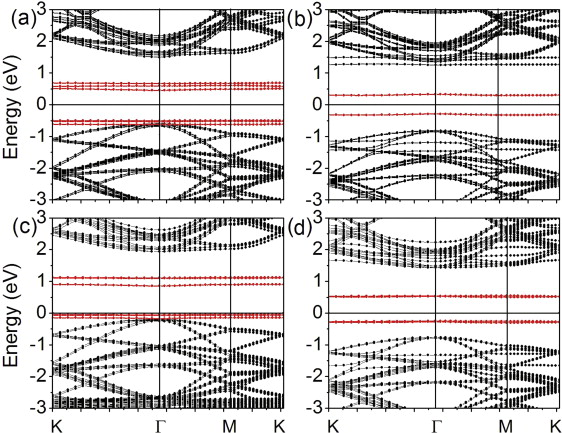What does a flattened band in a band structure plot imply? I've been reading this paper https://doi.org/10.1016/j.apsusc.2012.06.092 and one of the primary results is the flattening of bands however it does not say anything about the significance of the band flattening. can anyone help me with this?
1 Answer
The emergence of a flat band, i.e. a band with low dispersion, can be understood in terms of a tight binding picture. Bringing a set of atoms together, the initially discrete energy levels of the isolated atoms begin to broaden because of overlap of the orbitals between the atoms. The stronger this overlap / hybridization, the broader the band will be. A very flat band is formed from states that have very little orbital overlap between the lattice sites. As a first approximation, the width of a band is proportional to the overlap integrals (also called hopping integrals) between the nearest neighboring sites (overlap between sites further apart typically leads to somewhat smaller corrections to the band shape).
A derivation of the dependence of the band width on the nearest neighbor hopping (and an introduction in general) can be found in "Crystal-Field Theory, Tight-Binding Method and Jahn-Teller Effect" by Eva Pavarini (the bandwidth dependence (the factor $2t$ in front of the cosine) is introduced on pages 6.25/6.26).
-
$\begingroup$ Thanks for this. Is there any reference where I can read more on this? $\endgroup$– jboyCommented Oct 16, 2019 at 23:11
-
2$\begingroup$ Solid state physics by Ashcroft and Mermin has an introduction to tight binding models (many other introductory books to solid state physics, e.g. Kittel, as well) : equations for bandwidths are derived among other things. There is also an open access article by Eva Pavarini I am going to link in the answer. $\endgroup$– v-joeCommented Oct 17, 2019 at 1:16

